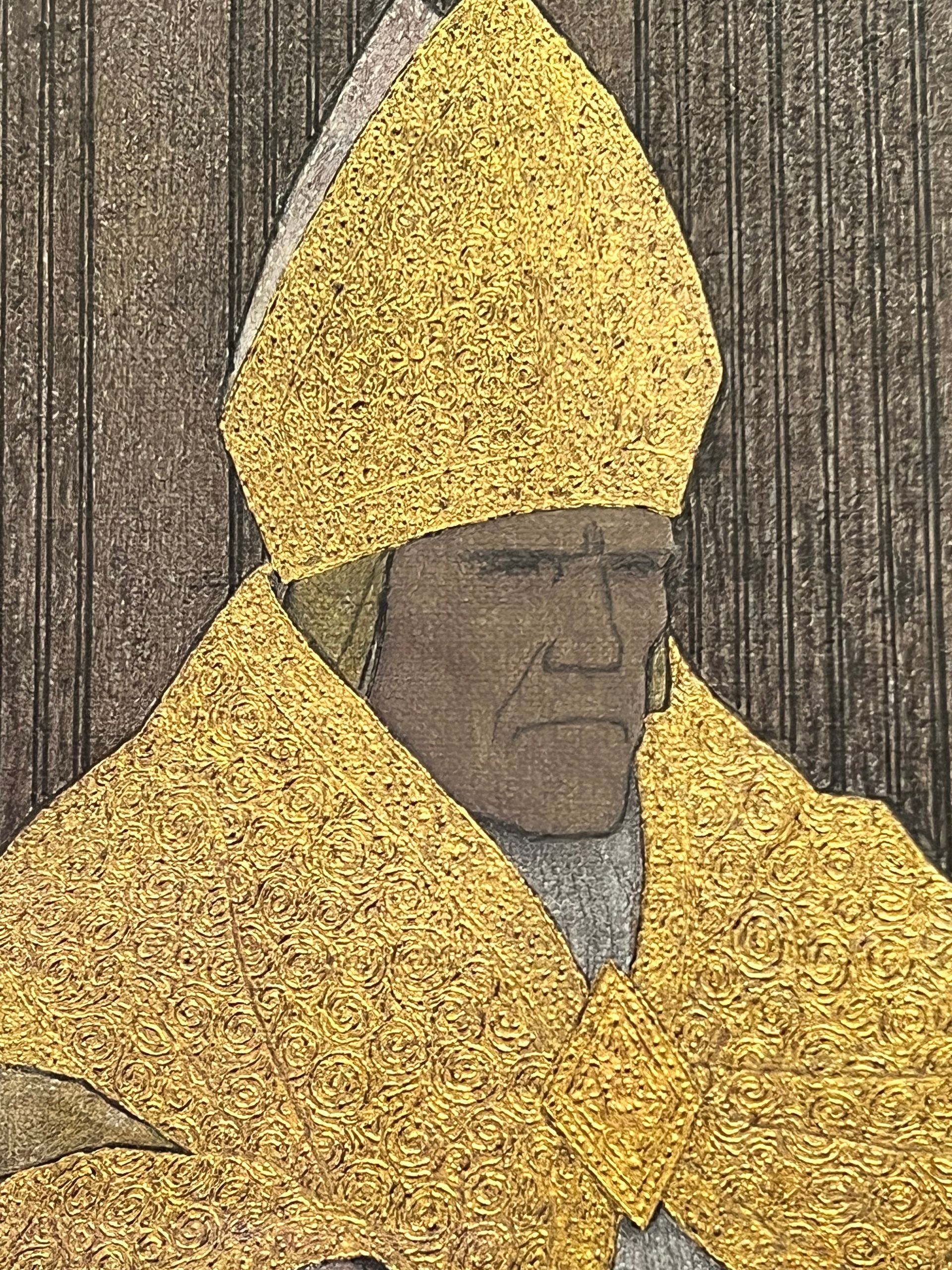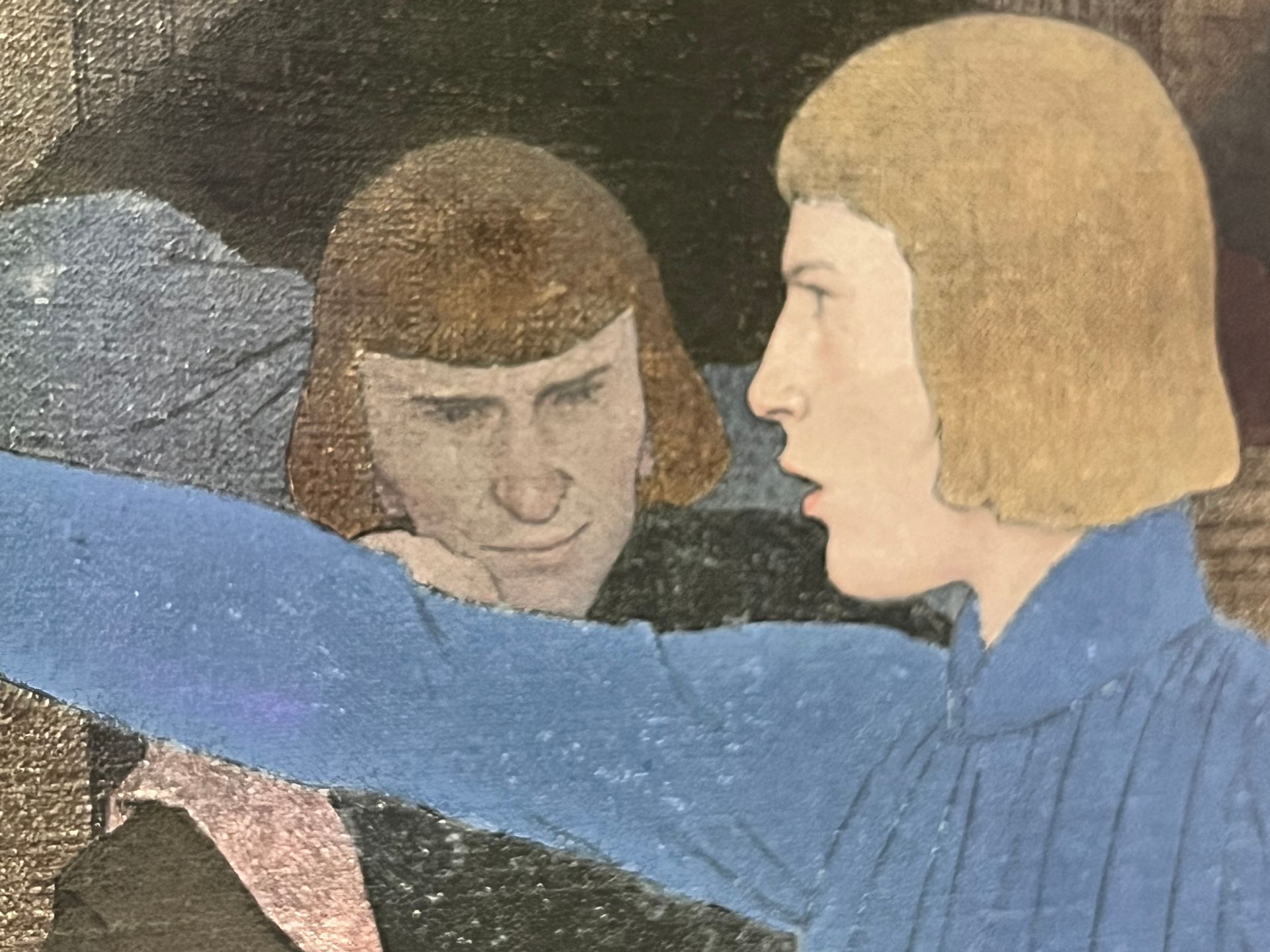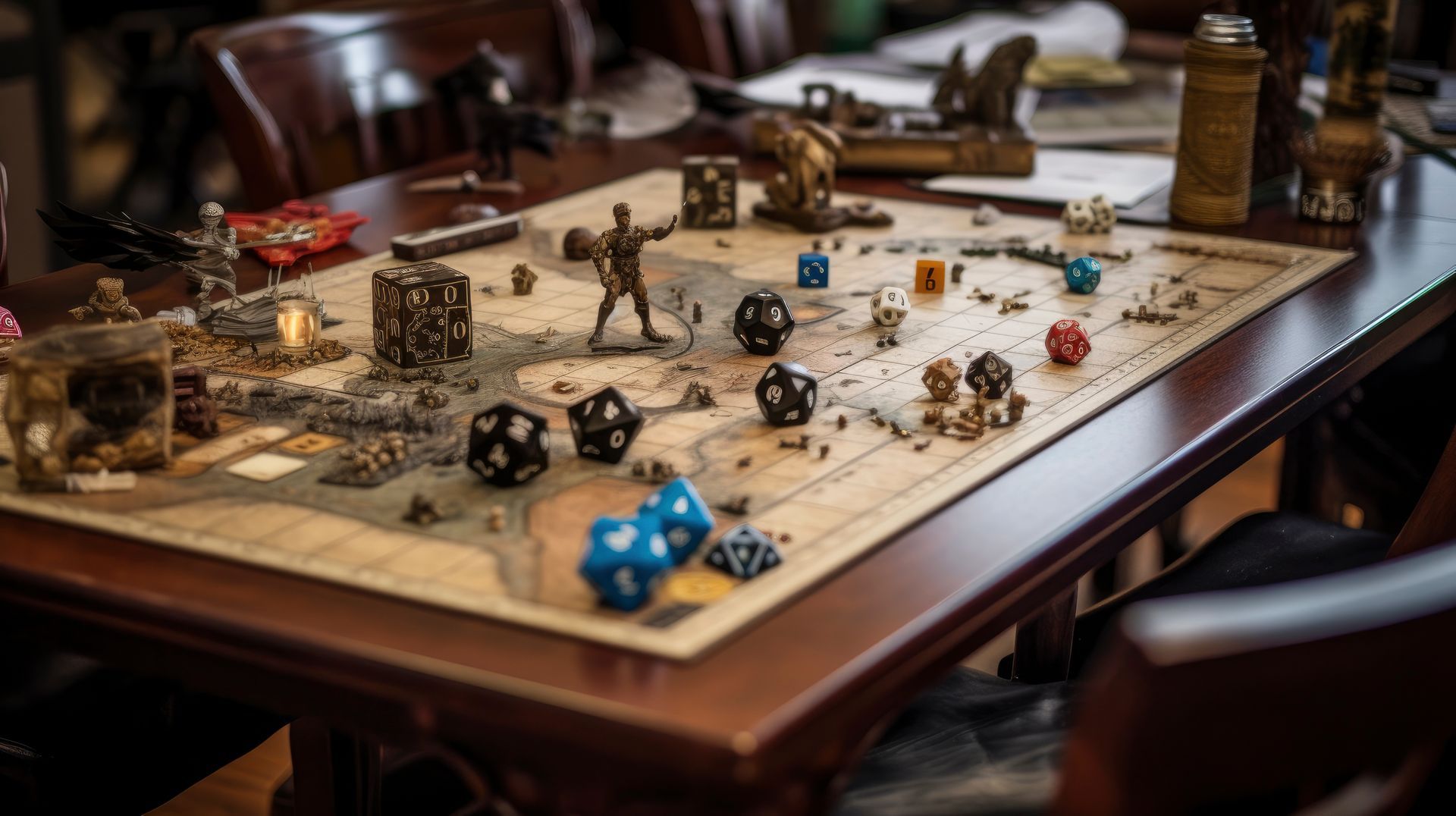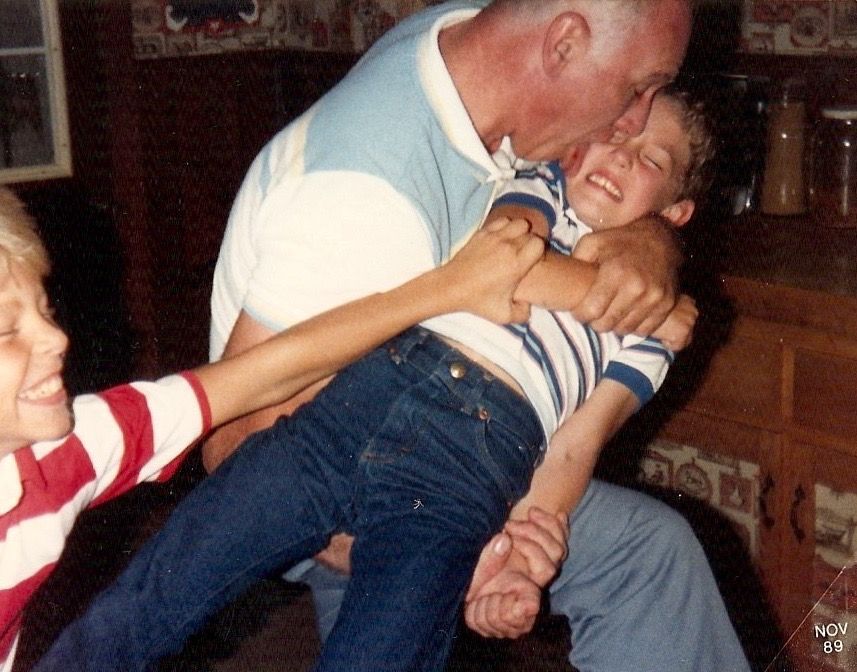A Simple Faith
Searching for meaning in a religion gone rancid.
This article is the first in a series about my faith journey, it's near extinction, and how it's going.

In the West Building of the National Gallery of Art hangs a massive painting, 92 x 141 in. if you include the frame. The artist is Albert Bierstadt and this piece is "Lake Lucerne," painted in 1858. Bierstadt would go on to create some of my favorite landscapes of all time a few years later after visiting the Rocky Mountains.
My connection to this painting is not just my love of Bierstadt's landscapes, but the fact that it's depicting a real location in Switzerland. My surname, Spitler, is Swiss, meaning hospitality. It's also derived from the same latin word we use for hospital, possibly even connected to the Knights Hospitaller. I've been able to trace my genealogy back to Switzerland in the 1700s when our name was still spelled Spittallah. A hospitaller would have been our modern equivalent of an inn keeper, but their role in the Alps was to provide respite for mountain travelers. I'm digressing—a post for another day, perhaps.
So there I am standing in front of a picturesque lakeside village in the Swiss Alps painted by one of my favorite landscape artists, wondering why on earth my ancestors would leave this country.
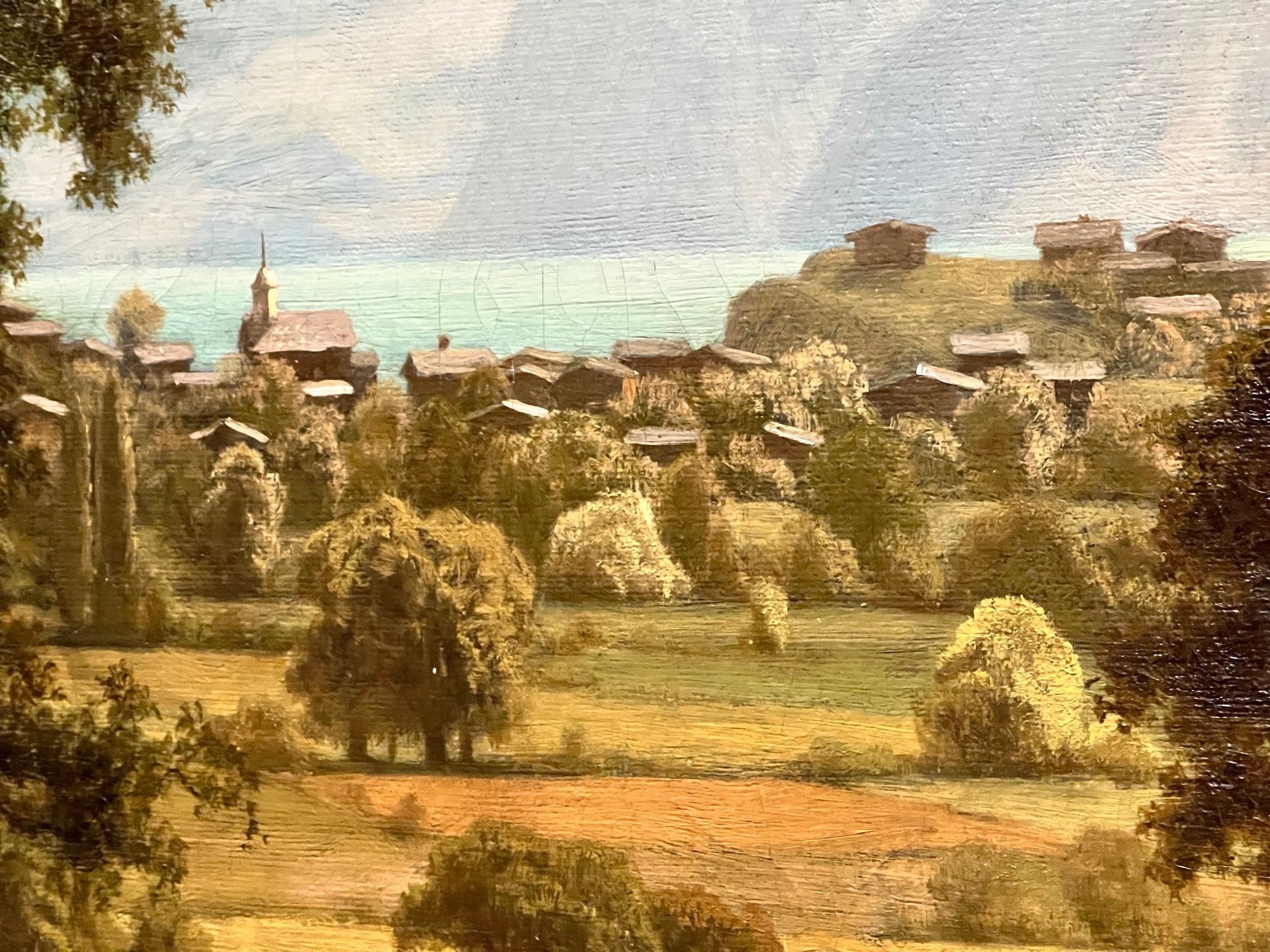
This painting is nothing short of awe inspiring. The scale of the canvas allows Bierstadt to paint amazing details adding to the texture of the landscape. It really does feel like you're standing in a place in time. His use of light makes you feel the weather—the clouds moving over the sunlit mountains and lake. Those mountains feel enormous, towering over us with protective rigidity—timeless guardians.
As your eyes wander the canvas you'll notice the roads, the village, the farmhouses, the wildlife—and then a church. The church is not the first thing you'll see, not by a long shot. It hides in shadow in an embankment overlooking the valley below, far to the right of the image.
I suddenly had another connection to this painting, though I couldn't put it into words at the time.
Today, as I tried forming my thoughts for this article, I poured over some of the photographs I'd taken while visiting the National Gallery of Art. This one stood out immediately and gave me an anchor to express my point of view.
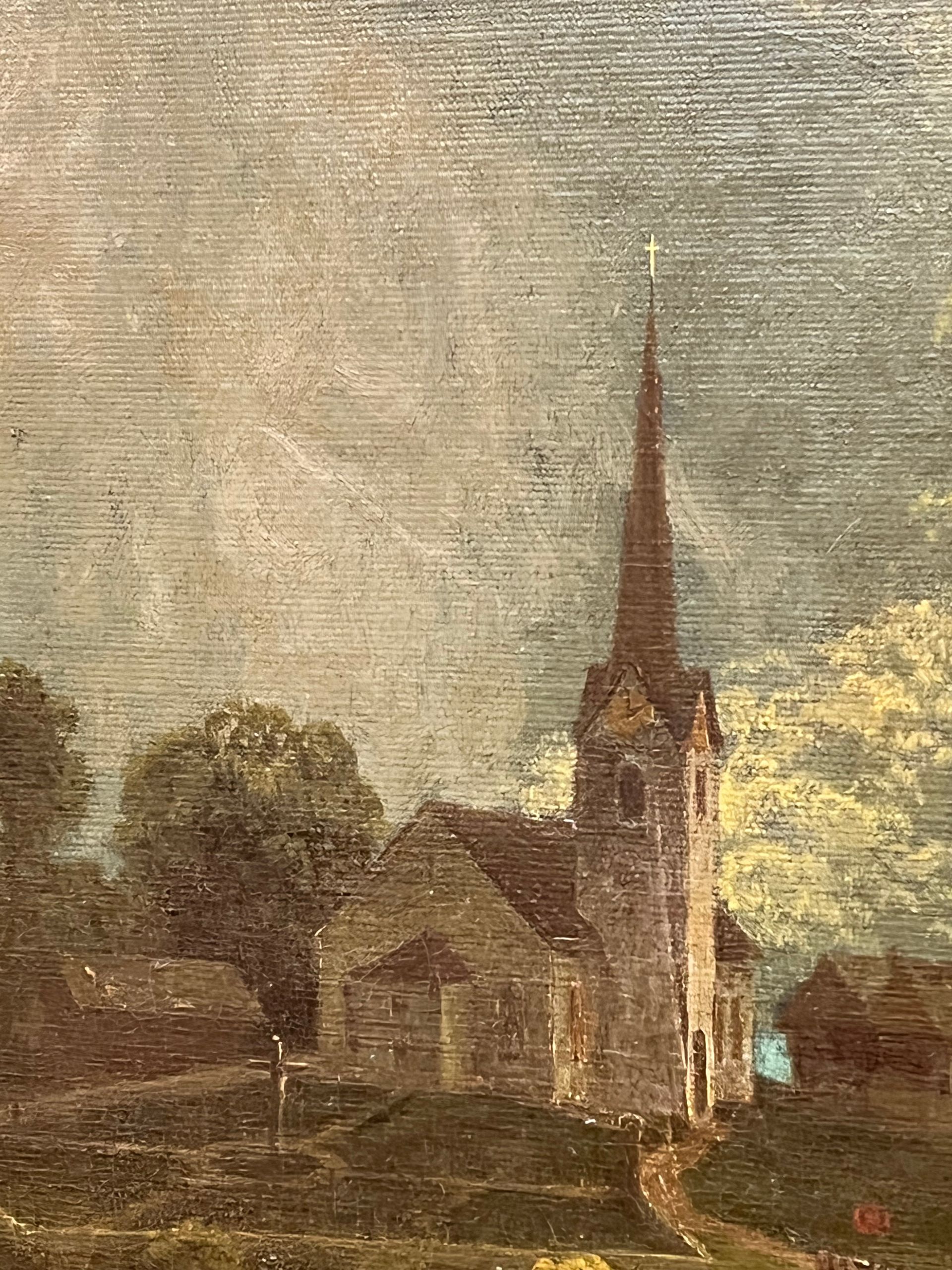
I find it fascinating that despite the building's location, atop a hillside overlooking the village, the church itself is hidden in shadow. It does not offer any comfort or majesty in the painting. In fact the lakeside village is detached from the church by a significant stretch of road but appears quite comfortable to be at opposite ends of the canvas in its sunlit mountain vista.
The church is not a central gathering place for the people of this village. It gives the impression someone felt the need to give an artificial importance to the church location, plopping atop the hill to overlook the villagers below.
I don't know anything about the real location of this painting, or the religious climate in Switzerland in 1858, but I do know this small feature of the painting speaks to how I feel about the Church today.
I grew up in rural Ohio, attending a little Methodist church in a village whose main feature was the grain elevator at its center. It looks strikingly similar to the building in this painting. At one point I was an "acolyte," which was a high title for the boys responsible for lighting the candles at the alter at the start of every service, and extinguishing them at the end. I was baptized in that church on some Easter Sunday (sprinkled, not dunked, because—reasons, I guess?) when I was too young to know what it meant.
But I did read my Bible. I read it enough to know what the Jesus in my Bible was saying didn't line up with what the Church was doing.
I'll give you an example, but I have to fast forward a few years. In high school I was the "president" of the youth group, which was controversial because I was no longer attending that church. My parents had opted to drive 45 minutes to an aspiring televangelist she'd seen on local television (he was not mainstream or nationally televised). I was also involved in the youth services at the new church (they were too cool to call it a youth group).
The new church was going to put on a big event for the youth of Dayton, OH, wanting to offer to pick the kids up and bring them to the church for the event—but they needed a bus.
Hey, no problem, I'm the president of a youth group who just happens to own a bus!
We call up the pastor who thinks it's a great idea, BUT he needs to run it by the board of directors first. Fifteen minutes later he calls us back.
"Sorry, but the charter states the bus can only be used for official Methodist functions."
"Sorry, but the charter states the bus can only be used for official Methodist functions."
Here is a golden opportunity for this small town, rural church to be part of saving souls in the big city and they totally drop the ball. There were multiple attempts to change the mind of the board but they wouldn't budge, it was cut and dry for them, as easy as the black and white in their worthless charter.
It had a lasting impression on me and I never went back.
Here was this little church proverbially situated atop a hill, completely in shadow, detached from the community it pretended to serve.
Let's fast forward 20 years. During that time I'd gotten married, joined the Marines, started a family, gotten out of the Marines, lived in Southern California, New York City, and back to Southern California. Our relationship with the church waned and my faith had all but evaporated at one point, but returning to SoCal made us want to reconnect with the church "family" we'd started relationships the first time we lived there.
We were quickly welcomed back with open arms and things were really looking up from an emotional standpoint. Over the years my wife built strong relationships, as did I. Four years later some really weird things started happening.
The church was trying to be anything but the steeple clad denominations of the past. These folks were putting on a concert every week and titillating the emotions of the congregation at every turn. We met in an old warehouse connected to a fitness center. They started in a living room, moved up to renting out the cycling room, eventually took over the volleyball court, and worked their way into the warehouse on the other side.
The thing is, the congregation hadn't grown to a point we could actually afford that space. It was all done "on faith" God was going to provide the congregation we needed, all we had to do was—well you get it.
And then the fitness center no longer wanted the volleyball court. This was a problem because we were still using that space for our youth church on Sunday mornings and the leadership wouldn't imagine putting the kids back into the old rooms, and I guess we didn't have the faith to believe God would take care of it so we rented that space, too!
"The church can't afford rent!"
Soon I started getting group texts and emails from the pastors begging for anyone who hadn't contributed their tithe recently to send it in immediately or the church can't afford rent! And then we'll be homeless! All the while, on Saturday mornings the men would gather together and reassure the pastor we didn't need the building. We'd happily meet in a field or parking lot and put our money toward helping the community.
But no, this was not acceptable. Our faith couldn't falter now, look how far we'd come! And just in time for the rent to start increasing on all that space we're renting, in the middle of planning to upgrade our spaces with more bathrooms and extra HVAC units on the roof, all on faith that if we build it, they will come.
At some point a new guy started to come. For the sake of this article we'll call him Bill. He had experienced some health issues and was no longer able to work. He'd been living in a pull-behind trailer in a parking lot with no electric or water hookups. His health issues also prevented him from driving, so in order to move the trailer he'd need assistance.
The church offered to pay for Bill to park his trailer in a park with hookups for 30 days, but after that it would be up to him to figure things out. The church touted this like it was a big deal and they were so Godly for helping a member of their congregation like this. All I could see was social media fodder with no real meat to the gesture. This man was going to be back to zero in 30 days.
My wife and I felt strongly our tithe needed to go toward paying for Bill's ability to stay long-term at the campgrounds. We did this privately and I'm only writing it here because it plays a role in the very next thing that happens.
The pastor's wife was paying close attention to who was and was not paying tithe.
It had come to light the pastor's wife was paying close attention to who was and was not paying tithe. It did not go unnoticed my tithe checks stopped rolling in. At this same time I'd also been attending a gathering of other believers for a deep-dive Bible study, something my current church did not offer. I was not quiet about this fact and often brought things I'd learned to our Saturday morning men's group. I didn't think anything of it.
One Friday night I'm asked to meet the head pastor at the church. He was emphatic it happen that night. I roll up with my young daughter in the car and see the youth pastor is also present. He is not a small man and I felt instantly this was intended to be intimidating.
We met in the head pastor's office, the youth pastor standing behind him like a mafia bodyguard, silent and unmoving, hands crossed like he's waiting for a fight. He wasn't, but it certainly felt that way from where I was sitting.
In fact there's another painting at the National Gallery of Art. It's part of a series by Louis Maurice Boutet de Monvel. The painting is "The Trial of Joan of Arc (Joan of Arc series: VI)." Just look at the way the pope (or whoever he is) glowers at Joan from the darkness. Looking at this painting reminds me of how I felt sitting in that office that evening.
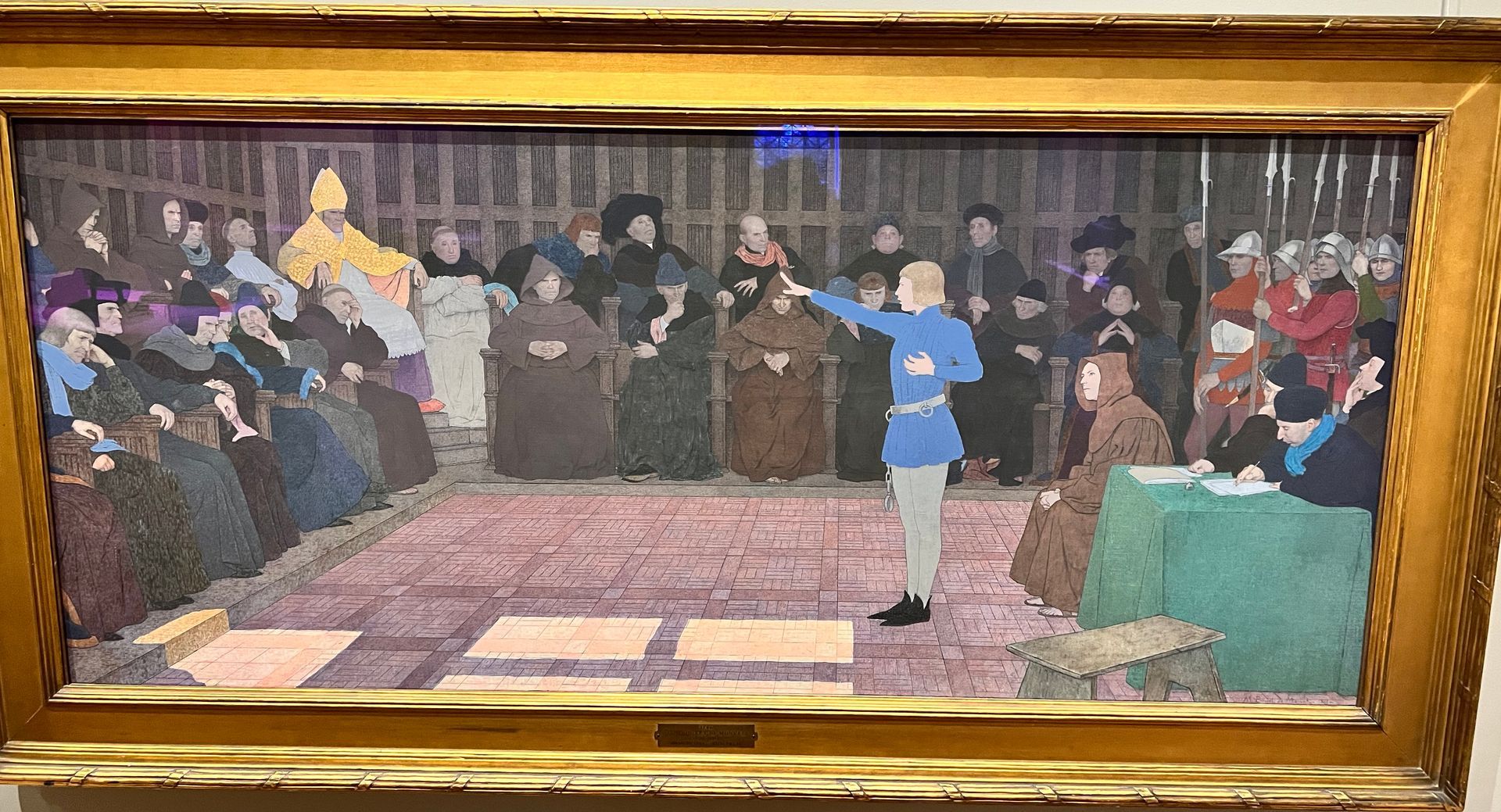
The tithe issue was never brought up, but the pastor's words were, "Your loyalties lie elsewhere."
I knew what he meant right away. He thought I'd been paying tithes to this other group I was having Bible study with and that my loyalty to him and his wife had shifted to another church, when in fact I'd been paying for a member of our congregation to have basic human living conditions.
My reply was simple. "My loyalties are to Jesus. If we're both loyal to Jesus there's no problem."
And then he said, "I've been told by another member of the congregation that's it's them or you. If you don't leave they're not returning."
It took me a few days to figure this out, but he was talking about his wife. She'd been eyeing the books and given him an ultimatum and I simply was not going to win this battle. Nor did I want to. True colors were never more clear.
Tears were shed. Feelings were hurt. Faith was broken.
I am leaving out a plethora of details as this article is already of significant length, but suffice it to say this was like a nuclear bomb to my family's emotional and spiritual wellbeing. That was six years ago and my wife is still resistant to attend church again.
Another church atop a hill in shadow, detached from the community it claims to serve.
For the sake of giving you a conclusion to that story, I'll add two years later the church disintegrated and the pastors moved from SoCal to Virginia in hurry. The congregation was absorbed by another. They were excited to finally have a building because they'd been meeting in a high school parking lot for years. Turns out even with combining congregations the building was not affordable and the new pastor did what the old one could not—simply walk away.
For six years I have worked at reclaiming my faith. It is no surprise to me at all my generation is leaving Christianity in droves. The denominations are more interested in becoming businesses, putting on concerts and motivational speeches that Tony Robbins would be proud of. But they're empty, void of meaning or any spiritual depth.
I will never walk into a traditional church again.
The tithe chasing mega-churches (and mega-church wannabes) are winning. There's no room for me there. I will never walk into a traditional church again.
But my faith has not disappeared. If anything, I feel closer to Jesus than I ever have. It's a simple faith I'm after—a relationship. No, it's more specific than that. It's a romance.
While I feel it's a simple faith, it is not without work, just as any relationship requires.
If you're still with me, thank you for reading this.
Make. Believe.
—Shawn
